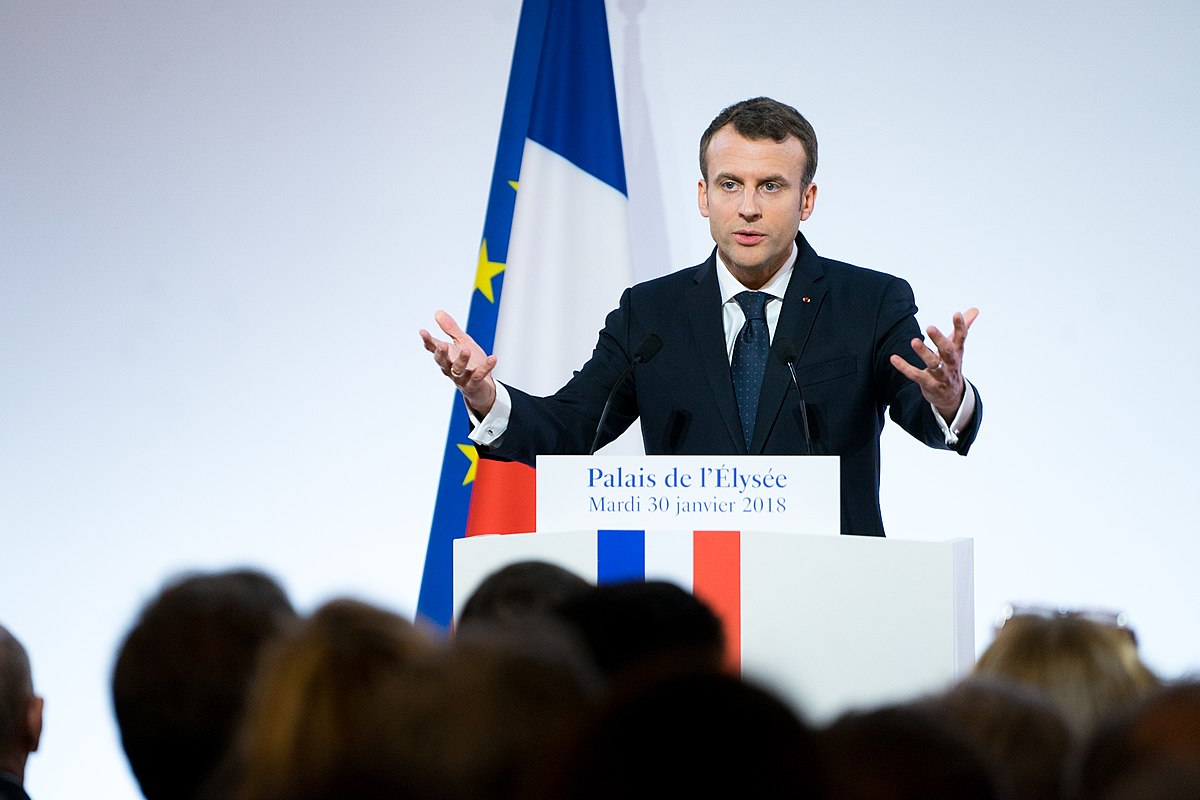 President Macron. CC Image: paquierjacques on Flickr https://bit.ly/2IbaEUd
President Macron. CC Image: paquierjacques on Flickr https://bit.ly/2IbaEUd
Macron’s Anti-Separatism Bill
Three Islamic terrorist attacks in the last two months, coming amid tensions over controversial cartoon depictions of the Prophet Muhammad, have reignited debate about France’s secular identity, freedom of speech, and more significantly, Islam’s place in French society. President Emmanuel Macron, an ardent supporter of secularism, has emphatically defended the caricatures and has gone so far as to say that France must promote an “Islam of Enlightenment” by combatting “Islamic separatism” within the country. To achieve this, he has outlined legislation aimed to regulate the practice of Islam in France. Unsurprisingly, Macron’s response has sparked anti-France backlash in much of the Muslim world, including criticism from foreign leaders and calls for boycotts of French products.
The counterterrorism-aligned response of the government following the attacks has been fierce and rapid. After the murder of teacher Samuel Paty, a broad crackdown on individuals, mosques, and organizations with ties to religious extremism took place through dozens of raids, threats of mass expulsions, and the dissolution of Muslim aid organizations. Following the Nice church attack, the state’s terror alert level reached ‘severe’ and the government deployed nearly 7,000 members of France’s anti-terror security force to churches, schools, and religious sites. Many in French Muslim communities criticized the response as too reactionary and fear further marginalization.
Macron’s Anti-Separatism Bill
Since 2018, Macron has aimed to restructure Islam in France, with the goals being integration and the prevention of radicalization. In early October, following a terrorist attack in front of the former Charlie Hebdo office, Macron outlined a long-awaited law to combat “Islamic separatism,” reform the practice of Islam in France, and defend secularism. In his speech, he warned of groups attempting to create a parallel society governed by rules and values which are fundamentally at odds with French secularism. A poll in October showed high favorability for anti-separatism in France and the recent terrorist attacks might increase support for Macron’s proposal.
The bill, to be presented to parliament in December, includes provisions such as:
- Stricter monitoring of associations to ensure they don’t become a front for Islamist teaching
- Monitoring foreign investments in religious organizations to limit foreign influence
- Creating a certificate program for French-trained imams
- Homeschooling restrictions to prevent the creation of Islamic schools
- Improvement of public services in poor suburbs – lack of government support for immigrant communities can further reinforce sectarianism, with religious associations, and sometimes radicals, filling the vacuum.
Critics of the bill worry it will increase anti-Muslim sentiment and prohibit religious freedoms.
The Implications of a Faux-Right Shift
France now faces one of its most consequential junctures in terms of national identity and assimilation. France’s colonial history with Muslim majority countries has historically led to similar questions of Islam’s place in French society; however, the 2017 election accelerated the issue with fears of radical Islamic terror and a rising cultural divide within France. The rhetoric used by far-right candidates in 2017 also increased Islamophobia and anti-immigrant sentiment, attitudes which could further reinforce sectarianism and cultural isolation.
Cultural insecurity is typically a talking point for the far-right, which is why Macron’s response – both in rhetoric and in the brandishing of the anti-separatism bill – comes as such a surprise. Some worry that his response will only further deepen cultural divisions and stigmatism; others feel his leadership has narrowed the playing field for the far-right. If the latter is true, then Macron’s change in tone might be viewed as a political ploy to brandish a hardened stance on radical Islam in anticipation of the 2022 election. In order to contend with a populist environment and defend against a potential challenge from far-right candidate Marine Le Pen, Macron might view this response as a necessary one to maintain power.
While it does seem that Macron’s bill is an attempt to address France’s failure to integrate its increasingly diverse immigrant citizenry, many of whom are Muslim, it could have an unpredictable effect on Islamic terrorism. As it stands, Macron is viewed as a hate-figure in much of the Muslim world and any attempt to regulate the practice of Islam will only deepen divisions, an element which benefits terrorist recruitment. The effects of this cultural divide have not only affected France: a recent terrorist attack in Austria has renewed fears of violence across Europe, including the UK, which upgraded its terror threat level as well. The implications of France’s cultural crucible might lead to a stronger, more integrated nation, but it also might reinforce divisions and lead to a domino effect of increasing acts of terror.





